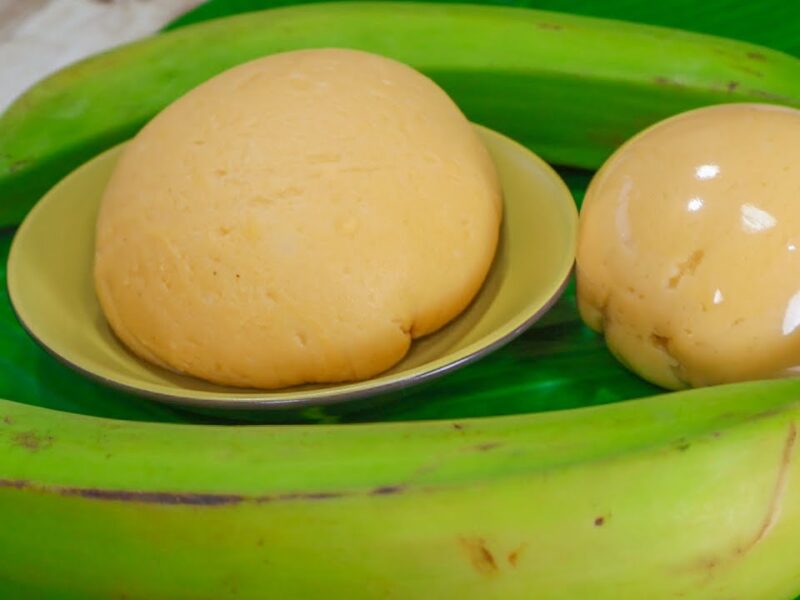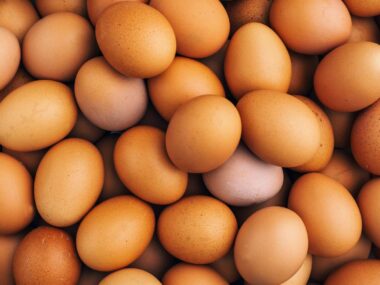Heart disease remains a significant global health concern, with factors such as poor diet and lifestyle contributing to its prevalence. In recent years, there has been growing interest in the potential cardiovascular benefits of plant-based foods, including plantain swallow.
This essay delves into the relationship between plantain swallow and heart health, exploring its nutritional composition, potential mechanisms of action, and implications for cardiovascular disease prevention.
Understanding Plantain Swallow
Plantain swallow, also known as plantain fufu or plantain amala, is a traditional African dish made from ripe plantains. It is prepared by boiling or steaming ripe plantains until soft, then mashing or blending them into a smooth, dough-like consistency. Plantain swallow is often used as a staple carbohydrate in African cuisine, serving as a nutritious alternative to traditional wheat-based or starchy swallows.
Nutritional Composition of Plantain Swallow
Plantain swallow is renowned for its rich nutritional profile, boasting an array of vitamins, minerals, and dietary fibres that contribute to overall health and well-being. Ripe plantains are particularly high in potassium, vitamin C, vitamin A, and dietary fibre while being low in fat and cholesterol. This nutrient-dense composition makes plantain swallow a valuable addition to a heart-healthy diet.
Potential Cardiovascular Benefits of Plantain Swallow

- Rich in Potassium: Plantain swallow is an excellent source of potassium, a mineral that plays a crucial role in regulating blood pressure and heart function. Adequate potassium intake has been associated with lower blood pressure levels, reduced risk of stroke, and improved cardiovascular health.
- High in Dietary Fiber: The dietary fibre content of plantain swallow helps promote heart health by reducing cholesterol levels, improving blood sugar control, and supporting healthy digestion. Soluble fibres found in plantains can bind to cholesterol in the digestive tract, preventing its absorption into the bloodstream and lowering LDL (bad) cholesterol levels.
- Low in Sodium: Unlike processed foods and fast foods, which are often high in sodium, plantain swallow is naturally low in sodium. A low-sodium diet is recommended for individuals with high blood pressure or cardiovascular disease, as excessive sodium intake can contribute to hypertension and increase the risk of heart disease.
- Antioxidant Properties: Plantains contain antioxidants such as vitamin C and flavonoids, which help protect against oxidative stress and inflammation, both of which are implicated in the development of heart disease. Antioxidants neutralize free radicals in the body, reducing the risk of cellular damage and supporting cardiovascular health.
- Gluten-Free Alternative: For individuals with celiac disease or gluten sensitivity, plantain swallow offers a nutritious and delicious alternative to wheat-based or starchy swallows. Avoiding gluten-containing foods can improve digestive health and reduce inflammation, which are important factors in maintaining cardiovascular wellness.
Incorporating Plantain Swallow into a Heart-Healthy Diet
Adding plantain swallow to a heart-healthy diet can be a simple and flavorful way to support cardiovascular health. Here are some tips for incorporating plantain swallow into your meals:
- Serve with Lean Proteins: Pair plantain swallow with lean proteins such as grilled chicken, fish, or beans to create a balanced and satisfying meal that supports heart health.
- Add Vegetables: Include plenty of colourful vegetables alongside plantain to boost fibre, vitamins, and minerals while adding flavour and texture to your plate.
- Use Healthy Cooking Methods: Opt for steaming, boiling, or grilling plantains rather than frying them to minimize added fats and calories. Experiment with different seasonings and herbs to enhance the natural flavour of plantains without relying on excessive salt or oil.
- Combine with Heart-Healthy Ingredients: Incorporate heart-healthy ingredients such as olive oil, nuts, seeds, and avocado into plantain-based recipes to further enhance their nutritional value and flavour.
- Enjoy in Moderation: While plantain swallow offers numerous health benefits, it’s essential to enjoy it as part of a balanced diet and lifestyle. Practice portion control and moderation to maintain a healthy weight and prevent overconsumption of calories.
Conclusion
In conclusion, plantain swallow offers several potential cardiovascular benefits, thanks to its nutrient-dense composition and favorable impact on heart health markers. Rich in potassium, dietary fibre, and antioxidants, plantains can help regulate blood pressure, lower cholesterol levels, and reduce inflammation, all of which are crucial for maintaining cardiovascular wellness.
By incorporating plantain swallow into a heart-healthy diet alongside other nutritious foods and lifestyle practices, individuals can support their cardiovascular health and reduce the risk of heart disease. Whether enjoyed as a staple carbohydrate in African cuisine or as a creative addition to international dishes, plantain swallow offers a delicious and nutritious way to nourish the heart and body.
Related Tags
Taiwo Olawuyi
Taiwo Olawuyi is a highly dedicated and passionate professional blogger, renowned for her ability to create captivating, informative, and engaging content in the realm of health and wellness. She holds a Bachelor's degree in Political Science from Olabisi Onabanjo University and a Master's degree in Adult Education from the prestigious University of Ibadan. Her profound passion for health and wellness, coupled with her unwavering dedication to her audience, serves as a constant source of inspiration and enlightenment for readers worldwide.










